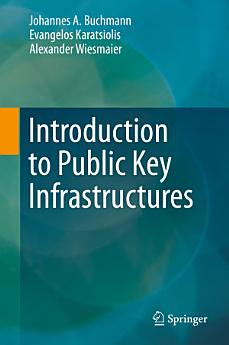Introduction to Public Key Infrastructures
Meer oor hierdie e-boek
In this book the authors explain the most important concepts underlying PKIs and discuss relevant standards, implementations, and applications. The book is structured into chapters on the motivation for PKI, certificates, trust models, private keys, revocation, validity models, certification service providers, certificate policies, certification paths, and practical aspects of PKI.
This is a suitable textbook for advanced undergraduate and graduate courses in computer science, mathematics, engineering, and related disciplines, complementing introductory courses on cryptography. The authors assume only basic computer science prerequisites, and they include exercises in all chapters and solutions in an appendix. They also include detailed pointers to relevant standards and implementation guidelines, so the book is also appropriate for self-study and reference by industrial and academic researchers and practitioners.
Meer oor die skrywer
Johannes A. Buchmann received a PhD in Mathematics in 1982. He is a Professor of Computer Science and Mathematics at TU Darmstadt specializing in cryptography and IT security. In 1993 he received the Leibniz Award of the German Science Foundation, the most prestigious science award in Germany. He is a member of the German National Academy of Sciences Leopoldina and the German Academy of Science and Engineering. He is also the author of the Springer Undergraduate Text in Mathematics "Introduction to Cryptography".
Evangelos Karatsiolis received a PhD in computer science in 2007. He works as a software engineer at FlexSecure GmbH in Darmstadt, designing and implementing PKI projects. He has lectured on PKI and has served on several program committees in the field of IT security.
Alexander Wiesmaier obtained a PhD in computer science in 2008. He works as a Lead Architect and a Senior Researcher at AGT International in Darmstadt. He specializes in critical infrastructure protection and national cyberspace defense. He is a consulting expert for the European Network and Information Security Agency, advising the agency on electronic identities and applied cryptography. He has lectured on IT security and has served on various program committees in the field of IT security.






